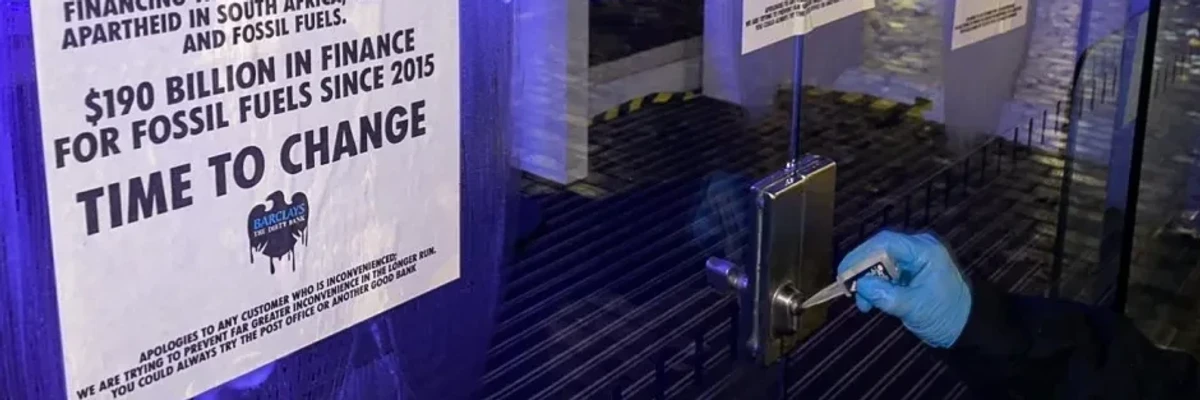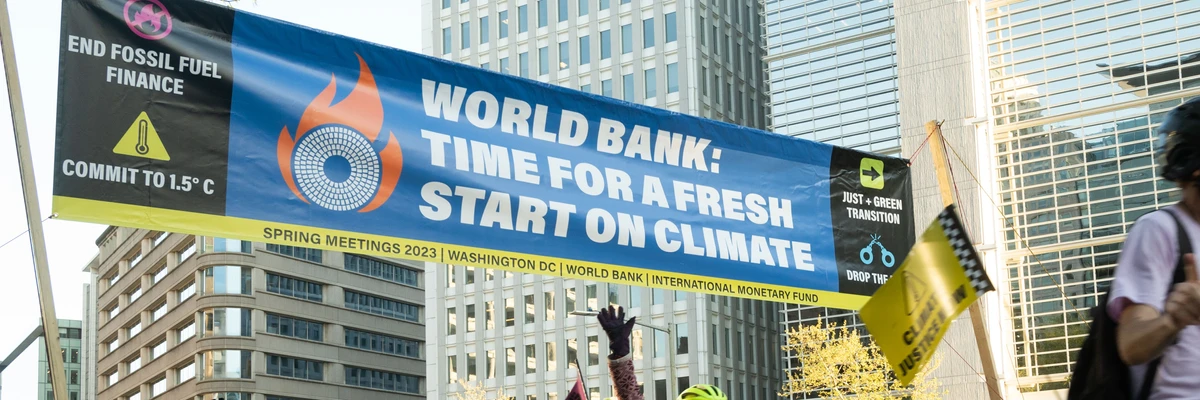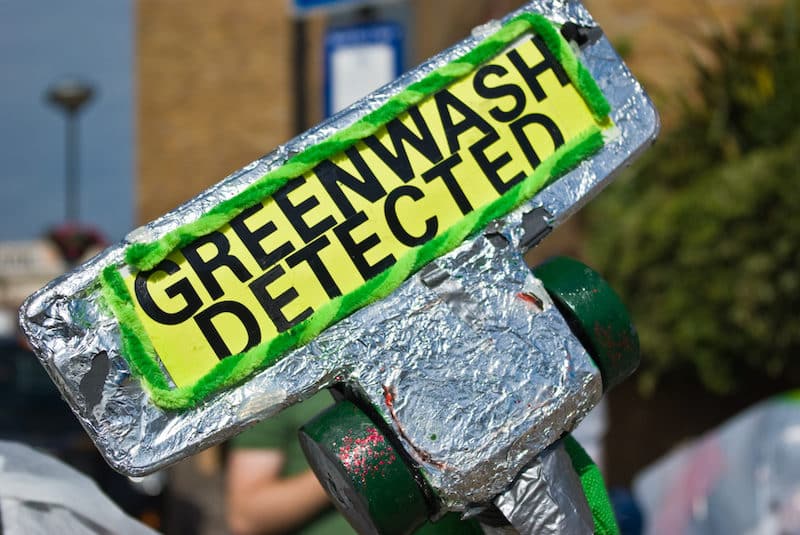XR Glues Shut Barclays Across UK for Financing ‘Climate Breakdown’
Original article by JESSICA CORBETT republished from Common Dreams under Creative Commons (CC BY-NC-ND 3.0).

“The inconvenience we’ve caused this morning is small in comparison to the catastrophic events already happening due to Barclays’ financing of fossil fuels,” said one campaigner.
“We have closed this bank today.”
That’s the opening line on an explanatory poster, plastered on dozens of Barclays branches across the United Kingdom on Monday.
“Barclays has been on the wrong side of history for centuries,” the poster continues. “Financing the Atlantic slave trade, apartheid in South Africa, weapons, and fossil fuels. $190 billion in finance for fossil fuels since 2015. Time to change.”
“Barclays are choosing short-term profits over a livable future and a lot of us are sick of the measly progress they’re making.”
The posters were left overnight by activists with Extinction Rebellion (XR), sister organization Money Rebellion, and allied groups, who superglued the doors shut at nearly 50 branches—inspired by a 2020 Greenpeace action targeting the bank.
“We’re responding to public attitudes and targeting the perpetrators of climate breakdown, not ordinary people, and we apologize for any inconvenience caused to staff and customers,” said an XR campaigner in a statement. “The inconvenience we’ve caused this morning is small in comparison to the catastrophic events already happening due to Barclays’ financing of fossil fuels.”
The climate groups pointed to this year’s annual Banking on Climate Chaos report, which shows that Barclays has poured $190.58 billion into the fossil fuel industry since 2015, when world leaders finalized the Paris agreement. Parties to that deal aim to keep global temperature rise this century “well below” 2°C, with an ultimate goal of limiting it to 1.5°C.
Already, “human activities, principally through emissions of greenhouse gases, have unequivocally caused global warming, with global surface temperature reaching 1.1°C,” relative to preindustrial levels, according to a March Intergovernmental Panel on Climate Change (IPCC) report.
A United Nations analysis published last week ahead of the upcoming COP28 U.N. climate talks projects that currently implemented policies put the world on track for 3°C of warming by 2100.
Responding to the Monday action, a Barclays spokesperson toldITV that “aligned to our ambition to be a net-zero bank by 2050, we believe we can make the greatest difference by working with our clients as they transition to a low-carbon business model, reducing their carbon-intensive activity whilst scaling low-carbon technologies, infrastructure, and capacity.”
“We have set 2030 targets to reduce the emissions we finance in five high emitting sectors, including the energy sector, where we have achieved a 32% reduction since 2020,” the spokesperson added. “In addition, to scale the needed technologies and infrastructure, we have provided £99 billion of green finance since 2018, and have a target to facilitate $1 trillion in sustainable and transition financing between 2023 and 2030.”
Climate campaigners argue that such policies are far from enough, given that the bank continues to finance fossil fuel projects.
“Barclays are pumping billions into the fossil fuel industry, completely at odds with advice from the International Energy Agency, United Nations, and IPCC,” said a Money Rebellion activist who took part in the action. “Barclays are choosing short-term profits over a livable future and a lot of us are sick of the measly progress they’re making, as they hide behind their lies and greenwash.”
Original article by JESSICA CORBETT republished from Common Dreams under Creative Commons (CC BY-NC-ND 3.0).

